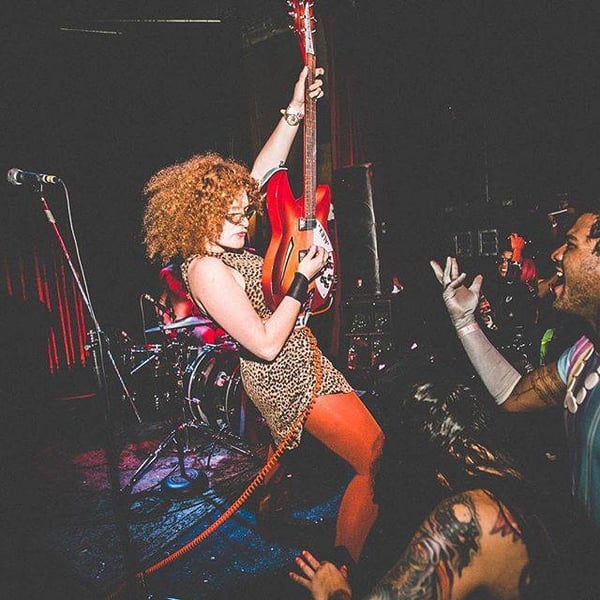 Alex White. (Photo by Dojo Zine)
Alex White. (Photo by Dojo Zine)
Before you dedicate yourself to the goal of being a full-time DIY musician, you should know what you're getting into, as well as what you're not. Even once you think you've reached the shorelines of success, you'll have to not only sustain it, but also keep progressing. The hard work simply never ends.
What can make the challenges easier, though, is foresight from someone like Alex White. She and brother Francis of the garage-rock duo White Mystery are a superb example of a successful DIY enterprise. Below, Alex clarifies three misconceptions about how many full-time independent musicians get things done and what kind of results can realistically be achieved.
1. "DIY means completely solo"
"Really, when you're DIY, it's more like DIT, which is Do It Together. There are so many people on the White Mystery team who, honestly, are basically volunteers," she says. "They call themselves the White Mystery Superstars, and they're like White Mystery interns or whatever, but a lot of them have graduated from college so they're not really interns. We do it together as a joint effort. 'Do it yourself' – that term is almost a challenge, it's like, do it yourself! It's like Uncle Sam pointing at you saying, 'Do it yourself!'...but I think at the end of the day, people have to understand that it really does require a community to generate your desired effects of being independent."
While we're chatting, she adds, her mom is downstairs in their basement printing merch, and her bandmate brother, Francis, is also working on something.
[How to Build the Dream Team for Your Music Career]
2. "You don't have to pay income taxes"
If your income as a musician (or anything else for that matter) exceeded $10,000, then yes, you probably have to file taxes. )To be sure, take this survey on the IRS website.) Alex admits it can be difficult trying to keep up with deductions and so forth; we suggest you start early and consider working with an accountant.
[4 Tax Write-Offs All Performers Should Take Advantage of Right Now]
3. "If you do everything right, your shows will always be successful"
"Some of my biggest heroes in bands that I really, really look up to have confessed to me – and I could probably confess it to other people – that you could be a huge band and you can still play shows that are sometimes real disappointing," she says. "You could be as big as the Jonas Brothers, and if you're playing a stadium and you haven't sold enough tickets, they'll cancel the show. I think that's one thing that's really important for...smaller-time musicians [to know], is that not every show is going to be great, even when you have all of what you consider to be the correct ingredients in place – ticket price, venue, right night of the week. You can be huge or medium-sized and you will still play empty shows here and there. It's disappointing, but you have to realize that it's a reality even for some of your biggest, most favorite bands. Sometimes even they're disappointed in the attendance at their shows.”
Jhoni Jackson is an Atlanta-bred music journalist currently based in San Juan, Puerto Rico, where she juggles owning a venue called Club 77, freelance writing and, of course, going to the beach as often as possible.


